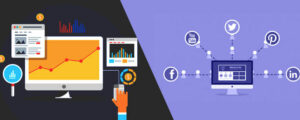The overwhelming majority of accounting software providers has been moving to the cloud. However, it is crucial to understand the differences between cloud-based accounting software and desktop accounting software.
While they are both accounting software, there are subtle differences that mean a lot for your business. They each offer some benefits over the other, and it is up to your business to figure out which direction you want to go towards. The rise of the Internet has made cloud accounting software more widespread, but there are still many use cases for desktop accounting software.
The option you take will depend on your specific situation and your budget. It will also depend on how you are most likely to use your accounting software.
Desktop Accounting Software
Contrary to online accounting, the traditional method of doing accounting is using desktop software. This desktop software is typically paid for upfront, and new updates are provided until a new version has been released. There is a normal upgrade cycle, and the business has to pay full price for each new version. It is often used by one person on a single computer.
There are several advantages to doing things this way. For example, you know you have access to the software and all of your data on your computer. It means you don’t have to worry about losing access to your data stored in the cloud. It also enables you to get work done without an Internet connection. For most small companies, this is a popular option.
Cloud-based Accounting Software
With the rapid rise of the cloud, accounting software developers have seen the possibility of having people pay monthly instead of yearly. The cloud has meant that they can now charge companies a monthly price for their software. However, there are still many great benefits that cloud online accounting software brings to the table.
These benefits appeal to many businesses, as it provides a way of streamlining accounting operations and minimizing the amount of work the accountant has to do. There are also tertiary benefits that come from not having to maintain your own hardware infrastructure to run your accounting software tools. It is one of the many reasons why cloud accounting software is only growing.
While there is a significant downside with cloud accounting software, there are still many more positives to offset this downside. You cannot access your accounting software without an Internet connection. However, the Internet is so ubiquitous today that it is almost impossible not to have an Internet connection. The cloud brings key advantages that make it a practical choice for most businesses.
Key Differences
- Accessibility
- Cost
- Scalability
- Security and Privacy
- Backups and Updates
- Reliability
If you are a small company that requires simple accounting software, desktop accounting software might be the right choice for you. However, for everyone else, accounting software in the cloud will be the right choice. It provides many more benefits than you get with desktop accounting software.
Software Development Company in UK can provide the necessary tools and expertise to make your cloud-based accounting software success. Contact us today to know more about what we can do for you.




